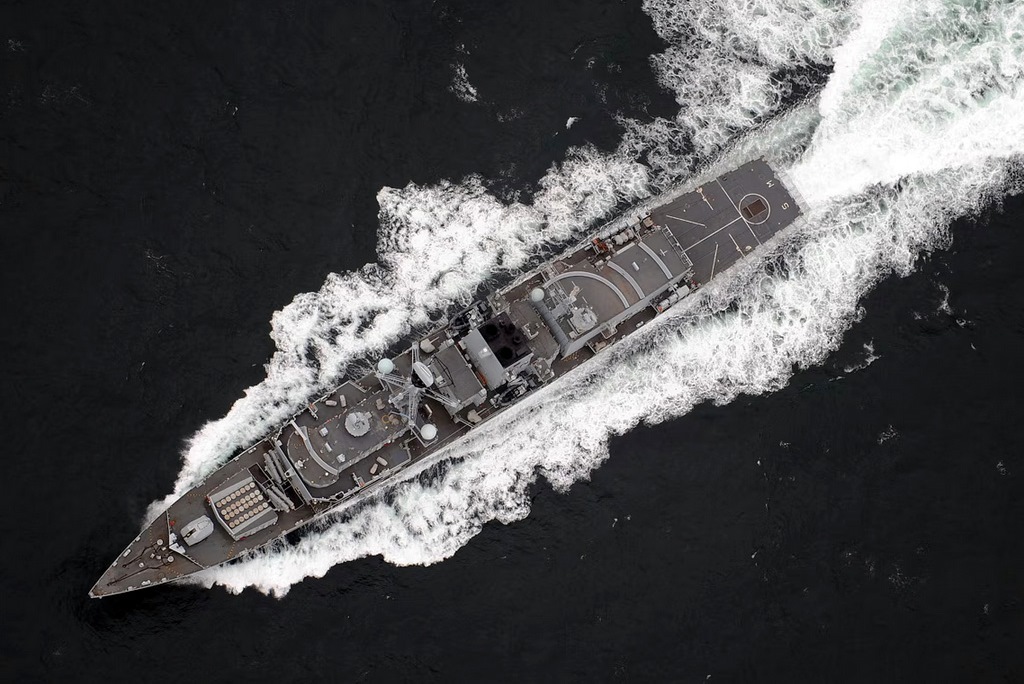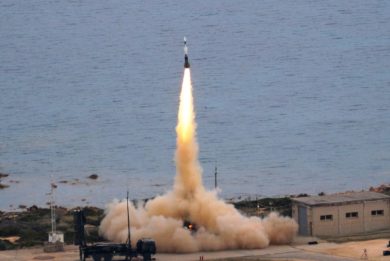
Thales wins £1.8 Billion contract to ‘maximise the days-at-sea for the Royal Navy’
02 Feb 2024 – The UK Ministry of Defence has today announced a new £1.8 Billion, 15 years contract with Thales to improve Royal Navy (RN) ship availability and resilience.
The new contract is in response to the increasing need for Royal Navy platforms to be on active duty for longer periods because of increasing global instability.
The contract, Maritime Sensor Enhancement Team (MSET), will sharpen the focus on equipment availability, predicting problems – through AI innovations and data management – rather than reacting when they emerge.
The contract will support over 450 highly skilled, UK-based, engineering, IT and supports jobs as well as many hundreds of apprenticeship and training opportunities all across the UK.
During the life of the MSET contract, the Royal Navy will undergo a significant transition including the introduction of the new Type 26, Type 31 and Dreadnought platforms, as well as autonomous systems.
MSET, a scalable service model, will provide greater stability and breadth in the level of support delivered to the Royal Navy during this complex transition period. By investing in new dockland facilities, AI, data analysis tools, and skills, this will deliver greater resilience for the RN platforms.
Over the life of the contract, it will deliver an average reduction in Turn Around Times of 100 days per repair, spares lead times will be reduced by an average of 44 days and reliability improved by 10%.
Data Driven Decision making will enable MSET to see beyond the current support horizons and with the increased investment in emerging technologies, including AI, virtual reality and Big Data, create a more proactive and predictive maintenance regime.
Investments will include improving facilities at HMNB Devonport, Faslane, Portsmouth and Bahrain to deliver an advanced test and repair capability, allowing specialist technical and engineering skills at the waterfront to provide direct support to the RN.
It will create 450 high skilled jobs all across the UK and support the training 100s of apprentices in much needed engineering skills in numerous local communities, with a further threefold increase in supply chain spend, supporting approximately 1,200 additional staff.
“Thales is delighted to strengthen our century long partnership with the Royal Navy, and support its vital role in defending the UK and keeping the worlds critical sea lanes open.
This £1.8 Billion contract with Thales will help keep more Royal Navy ships at sea for longer, by harnessing the latest developments in artificial intelligence, data analysis and improved dockland facilities.
Data Driven decision making enables MSET to go beyond the current support horizons and make a substantial improvement in the availability and resilience of the Royal Navy whist preparing for AUKUS, the landmark security and defence partnership between Australia, US and UK.
This will be the third generation of Thales apprentices, engineers and support staff helping to keep the Royal Navy at sea in an increasingly unstable world.
Alex Cresswell, Chairman and CEO of Thales in the UK.
- £1.8billion, 15 years contract, 1st January 2024 start.
- Significant investment in infrastructure and cutting-edge technological innovation includes investment at the waterfront facilities, in digital systems and new support. Further information available on request.
- The new contract will protect 300 current staff and create an additional 150 roles spread around the country including Glasgow – 104, Crawley – 46, Templecombe / Cheadle – 300
- Ships and submarines covered by the contract – T23, T45, Sandown, Hunts, A, V and T Class Submarines.
- The contract will support 18 equipment types and approximately 10,000 Line Replaceable Units.Once the enhanced MSET service is established, similar levels of service and availability will be available for the new platforms using Thales sensors and systems coming into service, such as the Maritime Mine Counter Measures (MMCM) programme, Type 26, Type 31 and Dreadnought. They would also benefit from the enhanced waterfront premises.
Photo © Royal Navy


